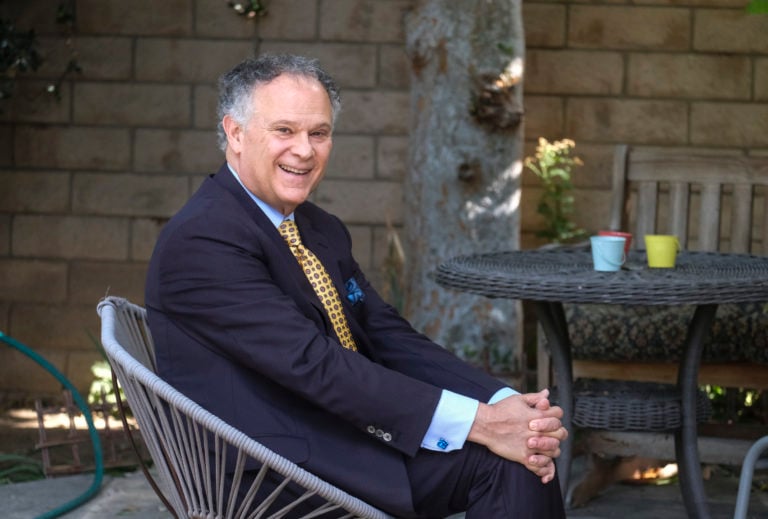
The native Angeleno had just moved back to Los Angeles from Connecticut for her husband’s new job.
But Guthrie, an attorney specializing in divorce mediation, was not licensed to practice in California, which has very different divorce laws from what she was accustomed to.
So, Guthrie went searching for a way to continue working with East Coast clients. She embraced videoconferencing in 2015, finding it was often superior to in-person mediations.
“I loved it,” she recalled recently.
Guthrie even branched her business out to coach colleagues in transitioning to remote mediation. “Nobody was very interested until seven months ago when it became very popular,” she said.
Guthrie’s early work in the virtual space has paid off in many ways. And on Nov. 6, she received the Southern California Mediation Association’s annual award for educating alternative dispute resolution professionals.
Zoom’s advantages are especially evident in divorces, she and colleagues said.
“It’s hard to find a more emotional process to go through than divorce,” Guthrie said. “The majority of my clients these days are sitting on their couch with their dog, or their home office, not some office conference room that they had to find a babysitter for and leave their places in heavy traffic (to go to). So it starts in a calmer place and a more emotionally regulated place.”
L.A. mediator Jeff Kichaven is also a believer in the benefits of video conferencing.
“Sometimes people are more relaxed when you’re sitting in the comfort of your own home, and your dog is at your feet or your cat is on your lap,” said Kichaven, who has been named L.A.’s Best Mediation Lawyer by Best Lawyers and has chaired several American Bar Association alternative dispute resolution committees.
“You’re less likely to get agitated,” he added. “So sometimes we’ve been able to have more direct communications, more frank and honest communications and less of the mediator just doing subtle diplomacy.”
Guthrie contends that, in many ways, video is preferable to in-person conferences, especially during stressful interactions.
“There’s something about being face to face … talking … about these difficult issues, but not being in the same room, that allows a lower level of conflict,” she said. “Video conferencing, which is so focused on the face, the visage, is a wonderful way for people to capture the nuances.”
Eleanor Barr, a distinguished fellow of the International Academy of Mediators and a frequent lecturer who has taught mediation at the Pepperdine University’s law school, said her settlement rate has been the same online as off.
But, she added, “When it’s helpful for me to have direct interaction with a party, then I can do that more efficiently on Zoom. I can look right at her, and she’s looking right at me, and we’re having a heart-to-heart connection.”
In group meetings, Barr said, “as long as each participant is using their own device, then I’m seeing everyone’s face, and they’re seeing my face, and that creates more intimacy than if you’re in a large room with a lot of people.”
Increased efficiency also comes from easier scheduling, as well as containing travel costs and travel time.
“It’s much easier to get people from across the country to agree on a date and agree to participate,” perhaps several times throughout a day, Kichaven said.
Not that mediators always find Zoom best.
When all the parties are around a Zoom room table, “I don’t have access to everyone’s face to have direct conversation,” Barr said.
Then there are home distractions. “I’ve had people say they have to walk the dog and disappear for half an hour,” Kichaven said.
Still, “I don’t think we’ll ever go back,” he added. “I think as travel restrictions and in-person meeting restrictions are eventually lifted, we’ll have something else altogether. I’m not sure exactly what it will be, but it will be some mix of in-person and remote.”
For Guthrie, the journey has continued. When her husband was offered another job a couple of years ago, they moved to a tiny Michigan town. She now mediates cases via Zoom in both California and Connecticut.
“I made the decision not to even open an office” when they arrived in Michigan, she said. “And now, I don’t think I will ever see the need to go back.”
